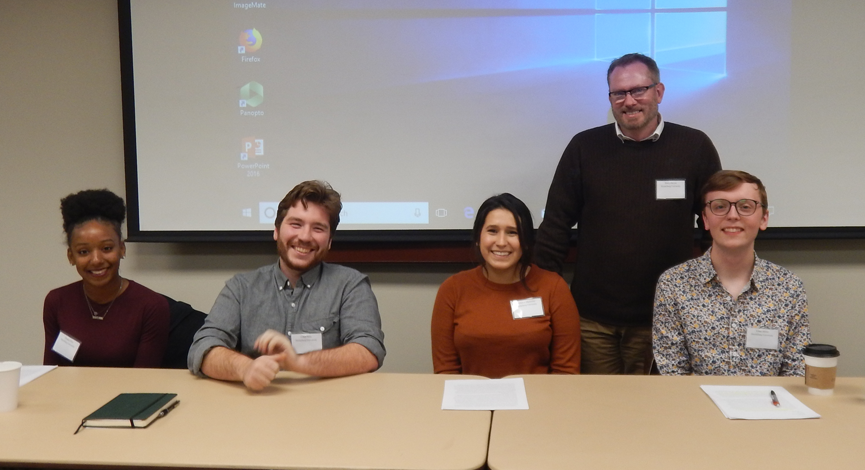
Seven students from Dr. Barry Devine’s spring semester literature course, “Studies in the Irish Novel,” had an opportunity typically afforded to faculty and grad students when they participated in the Midwest Regional American Conference for Irish Studies Oct. 10-12.
The students and their professor traveled to Creighton University in Omaha, Nebraska, for the conference. Divided into two panels, they presented their research at the conference, the result of projects they completed for the class. One group presented their research into a digital folklore archive in Ireland and the other group presented on their research/theory papers for the course.
“It’s remarkable that both panels of Heidelberg students were accepted to present,” Barry said.
The Novels Panel was comprised of Rebekah Marstaller, Shaadia Flint, Caleb Hess and Ethan Miller. The title of their presentation was “Experiments in Language, Politics and Nature.” They explored unexpected shoots in both classic and contemporary Irish literature and the unexpected connections made by Irish writers between nature and oppression, language and structure, and satire and history.
According to their professor, the presentation focused on “four great papers exhibiting a wide variety of in-depth theory and textual criticism.”
The Folklore Panel, with the topic “Folklore across Oceans and Generations,” was comprised of Zariyah Baynard, Madison Crow and Danielle Lester. The students drew their primary research from “The Schools’ Collection” – a fascinating repository of 740,000 pages of hand-written folklore in both English and Irish, from Irish schoolchildren in the 1930s. They investigated connections between Irish folk tales and contemporary folklore.
“The students did amazing work for a first-time foray into digital archival research,” Barry said.
The students are grateful to the Gekler family – alumna Jean Warren Gekler and Brooks Gekler – for their ongoing support of the English Department and for their significant role in making the trip possible. The trip also was supported by Heidelberg’s Pepsi and Hammel Grants for Academic Research.